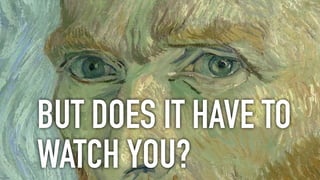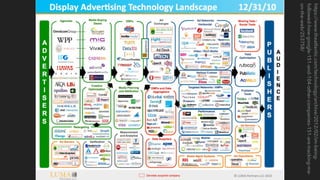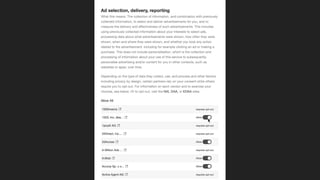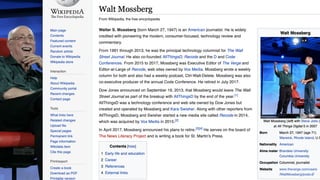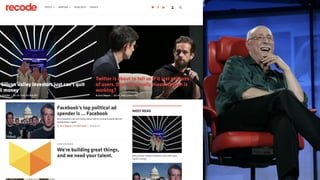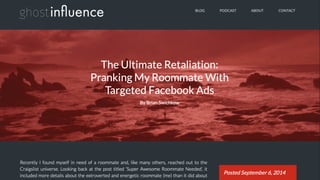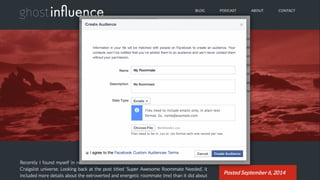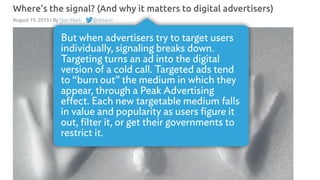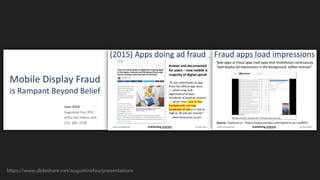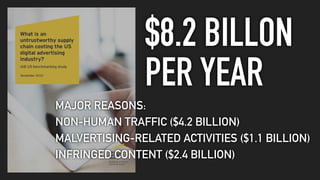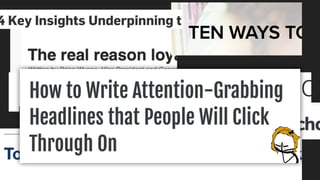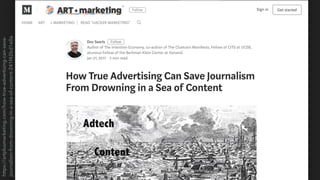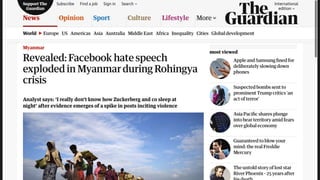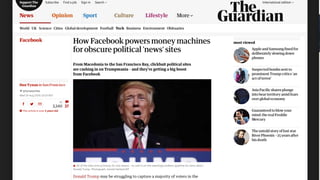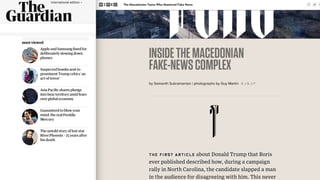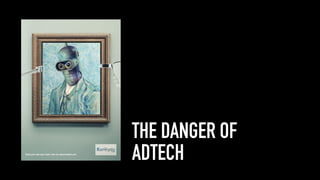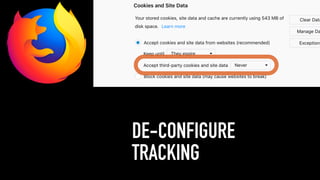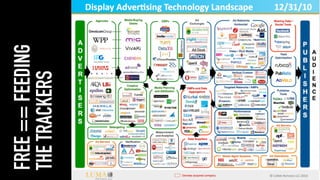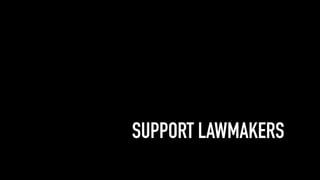Adtech considered harmful
- 1. ADTECH CONSIDERED HARMFUL PETER PURGATHOFER @ PRIVACYWEEK 2018
- 4. BUT DOES IT HAVE TO WATCH YOU?
- 5. BUT DOES IT HAVE TO WATCH YOU?
- 9. 56 TRACKERSâĶTHAT HAVE NAMES STARTING WITH ÂŧAÂŦ!
- 13. I asked him if that meant heâd be placing ads on our ïŽedgling site. He said yes, heâd do that for a little while. And then, after the cookies he placed on Recode helped him to track our desirable audience around the web, his agency would begin removing the ads and placing them on cheaper sites our readers also happened to visit. In other words, our quality journalism was, to him, nothing more than a lead generator for target-rich readers, and would ultimately beneïŽt sites that might care less about quality.
- 20. But when advertisers try to target users individually, signaling breaks down. Targeting turns an ad into the digital version of a cold call. Targeted ads tend to âburn outâ the medium in which they appear, through a Peak Advertising eïŽect. Each new targetable medium falls in value and popularity as users ïŽgure it out, ïŽlter it, or get their governments to restrict it.
- 23. $8.2 BILLON PER YEAR MAJOR REASONS: NON-HUMAN TRAFFIC ($4.2 BILLION) MALVERTISING-RELATED ACTIVITIES ($1.1 BILLION) INFRINGED CONTENT ($2.4 BILLION)
- 26. I asked him if that meant heâd be placing ads on our ïŽedgling site. He said yes, heâd do that for a little while. And then, after the cookies he placed on Recode helped him to track our desirable audience around the web, his agency would begin removing the ads and placing them on cheaper sites our readers also happened to visit. In other words, our quality journalism was, to him, nothing more than a lead generator for target-rich readers, and would ultimately beneïŽt sites that might care less about quality.
- 34. We were taught to fear totalitarian governments. We feared they would know everything about us, follow us everywhere, know who we were talking to and what we were saying, and keep secret ïŽles about us which could be used to inïŽuence our lives in ways that were only vaguely visible to us.
- 42. USE PRIVATE MODE FOR TRACKING-RICH MEDIA
- 43. USE PRIVATE MODE FOR TRACKING-RICH MEDIA
- 44. PAY FOR QUALITY MEDIA
- 45. PAY FOR QUALITY SERVICES & APPS
- 50. THANK YOU




